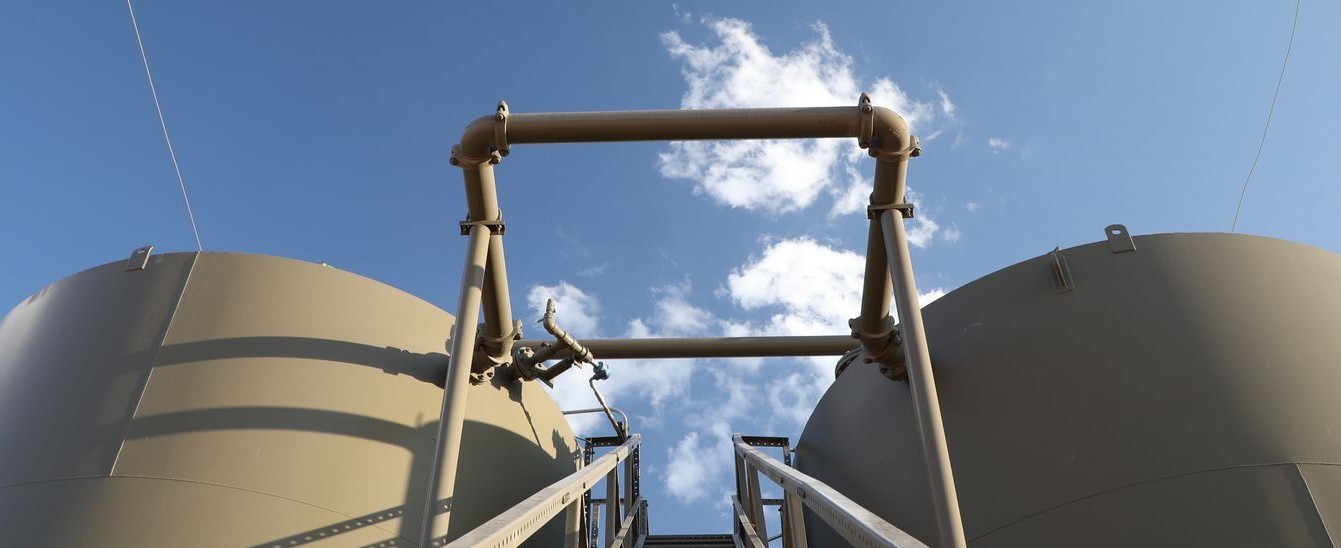Reducing methane emissions
Taking action to measure, report and mitigate methane emissions
Achieving meaningful reductions in methane emissions is a central component of Devon’s broader emissions reduction strategy. We are taking action to measure, report and mitigate methane emissions in a trusted and transparent way.
Independently verifying our reported GHG emissions data
To bolster the credibility of Devon’s emissions reporting which informs the basis of our emissions reduction targets, Devon engaged ERM CVS to conduct independent third-party limited assurance of our Scope 1 and Scope 2 location-based GHG emissions data, which includes methane, for the reporting year (RY) 2024.
Implementing advanced methane monitoring technologies
Advanced methane detection and quantification technologies are evolving rapidly. A cross-functional team at Devon evaluates emerging technologies that have the potential to be more effective at finding leaks over broader areas, allowing for faster detection and mitigation. The team has evaluated and tested advanced optical gas imaging (OGI) cameras, sensor-, camera and laser-based continuous and near-continuous monitoring, and fixed-wing aircraft flyovers. Devon’s emissions monitoring test facility in the Anadarko Basin, near our corporate headquarters, plays an important role in identifying which innovative technologies are viable candidates to incorporate more broadly across Devon’s various operating areas.
In 2024, we continued enhancing our leak detection and repair program by:
- Surveying 2,847 production and well-pad facilities with OGI cameras at least once during the year (with some facilities surveyed more than once)
- Surveying 4,018 production and well-pad facilities with aircraft flyovers at least twice during the year, and
- Installed continuous monitoring covering 46% of our production. All new facilities in 2025 have a monitoring device installed and the data analyzed by our operational teams.
Building on our progress
Devon implemented a variety of methane detection and monitoring technologies across our operations in 2024. By year end, continuous monitoring devices provided coverage for 46% of our production. Through integration of multiple technologies, including OGI monitoring, aerial flyovers and continuous monitoring systems, we achieved comprehensive coverage across 100% of our production operations. This full-scale implementation followed evaluation and pilot testing of multiple technologies, including perimeter-based and video detection systems.
We have an ongoing, increased effort to analyze data from our methane detection systems to better understand our emissions and abatement strategies.
In addition, we continue to develop best practices to operationalize the new data derived from these technologies and integrate the data and lessons learned into our business.
For example, we have integrated continuous emissions detection data into our systems and the decision support centers that monitor our facilities to improve our ability to trend and optimize our operations. We’re also deploying an artificial intelligence (AI) program that alerts us to take action on operational issues based on its analysis of data from our SCADA (supervisory control and data acquisition) system and decision support centers.
In addition, we created a continuous monitoring dashboard, automated the work order process for repairing detected leaks and developed a methane monitoring interim standard operating procedure (SOP). Using lessons learned and applying best practices will amplify the impact of our methane emissions technology choices.
Collaborating with industry
Engaging with leading companies that share our commitment to reducing methane emissions is essential for Devon and the broader industry. Together, we aim to establish trusted methodologies for reporting methane emissions, while integrating advanced technologies that are being actively evaluated, tested, and deployed by Devon and other industry leaders.
Oil and Gas Methane Partnership 2.0
Devon is a member of the Oil and Gas Methane Partnership 2.0 (OGMP 2.0), a multistakeholder partnership to improve the accuracy and transparency of methane emissions reporting in the oil and gas sector. OGMP 2.0 is a voluntary, public-private partnership between the United Nations Environment Programme, the European Commission, the Environmental Defense Fund and over 80 oil and gas companies aimed at minimizing methane emissions from global oil and gas operations. Its work has helped to raise awareness of methane emissions and contributed to the growing priority of mitigation activities.
OGMP 2.0 is the only comprehensive measurement-based reporting framework covering all material sources of methane emissions from both operated and non-operated assets across all segments of the value chain.
After joining OGMP 2.0 in 2022, Devon received the “Gold Standard Pathway” in 2023 and 2024 for our implementation plan, demonstrating our continued commitment to a transparent and accurate accounting of methane emissions across our portfolio. We continue to make progress toward credible, transparent reporting of methane emissions, and expect to achieve “Gold Standard Reporting” in 2025.
GTI Veritas
Devon is a founding sponsor of Veritas, a GTI Energy Methane Emissions Measurement and Verification Initiative. Veritas is the first-ever standardized, science-based, technology-neutral, measurement-informed approach to calculating and reporting methane emissions along the natural gas supply chain from production all the way to distribution.
As a founding sponsor, we are working with GTI Energy to develop and test the protocols in a transparent process together with technical experts, leading academics, environmental NGOs and companies. Once completed, the widespread adoption of the Veritas protocols across industry ensures that there is a consistent and transparent methodology for companies to calculate and report methane emissions. It also provides a standardized way of evaluating methane emissions monitoring and mitigation technologies.
Carbon accounting capability prepares Devon for increased regulatory reporting requirements

To continue improving our emissions data precision and reporting methodologies, Devon uses an internally developed carbon accounting platform for our emissions inventory reporting. The platform enables us to calculate emissions at the facility equipment level instead of at the traditional basin level. With a more precise and accurate emissions reporting inventory, we’re better able to meet regulatory and voluntary reporting standards, as well as model pathways for reducing GHG and methane emissions.
Developing our carbon accounting platform was a company priority and a collaborative effort of software developers, data engineers and data scientists on our technology team and our EHS and sustainability domain experts. As a result of this proactive project, Devon is better able to comply with regulatory standards and frameworks that are developed.
